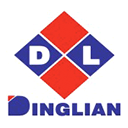Seamless Connectivity: Navigating the World of 7 Pin Trailer Connectors
When it comes to towing trailers, having a reliable and secure connection between your vehicle and the trailer is crucial. This is where 7 pin trailer connectors come into play. These connectors provide seamless connectivity, allowing for the transfer of power, signals, and data between your vehicle and the trailer. In this article, we will explore the various aspects of 7 pin trailer connectors and how they help in navigating the world of towing.
1. Understanding the Basics of 7 Pin Trailer Connectors
Before delving deeper into the world of 7 pin trailer connectors, it's important to understand the basics. A 7 pin trailer connector, also known as a 7-way connector, is a standardized connection system used in North America for towing trailers. It consists of seven pins, each serving a specific purpose, such as power supply, brake control, turn signals, and more.
2. The Importance of Proper Wiring
Proper wiring is essential when it comes to 7 pin trailer connectors. Each pin of the connector needs to be correctly wired to ensure seamless connectivity. It's crucial to follow the wiring diagram specific to your vehicle and trailer to avoid any compatibility issues or electrical failures. A secure and well-maintained wiring system ensures a reliable connection between your vehicle and the trailer.
3. Ensuring Compatibility with Your Vehicle
Not all vehicles come equipped with a 7 pin trailer connector. If your vehicle lacks one, it's important to check its compatibility and consider installing one. Many vehicles can be retrofitted with a 7 pin trailer connector, allowing you to enjoy the benefits of seamless connectivity. Consulting with a professional or referring to your vehicle's manual can help determine the compatibility and installation process.
4. The Functionality of Each Pin
Now let's explore the functionality of each pin in a 7 pin trailer connector:
- Pin 1: This pin is responsible for providing the 12-volt power supply to the trailer's interior lights and accessories.
- Pin 2: It connects to the reverse lights of the vehicle, illuminating the trailer's reverse lights when the vehicle is put in reverse.
- Pin 3: This pin controls the trailer's electric brakes, applying the necessary braking force when the vehicle's brakes are engaged.
- Pin 4: It serves as the ground connection between the vehicle and the trailer, ensuring a stable electrical connection.
- Pin 5: This pin connects to the left turn signal and brake lights of the trailer.
- Pin 6: Similarly, it connects to the right turn signal and brake lights of the trailer.
- Pin 7: This pin is reserved for future use or for additional functions such as backup cameras or auxiliary power.
5. Choosing the Right Connector Type
When it comes to 7 pin trailer connectors, there are different types available in the market. The most common types include round connectors and flat connectors. Round connectors are known for their durability and weather resistance, making them ideal for outdoor use. On the other hand, flat connectors are more compact and easier to store when not in use. Choosing the right connector type depends on your specific needs and preferences.
6. Maintaining and Troubleshooting
Regular maintenance is essential to ensure the seamless connectivity of 7 pin trailer connectors. It's important to keep the connectors clean and free from dirt, debris, or corrosion. Additionally, checking the wiring for any frayed or damaged wires is crucial. If you encounter any connectivity issues, troubleshooting steps can be taken, such as checking the fuse, testing the connectors with a multimeter, or inspecting the vehicle and trailer wiring for any faults.
7. Safety Considerations
When using 7 pin trailer connectors, safety should always be a top priority. Make sure to double-check the connections before each towing session to ensure a secure fit. Additionally, always follow the weight and towing capacity guidelines provided by your vehicle's manufacturer to avoid overloading the trailer. Regularly inspecting the connectors and wiring for any signs of wear or damage is also important to prevent any potential accidents or malfunctions.
8. Upgrading to Advanced Connectivity
While 7 pin trailer connectors provide reliable connectivity, advancements in technology have introduced more advanced options. For those seeking enhanced features and convenience, upgrading to connectors with additional functions like integrated backup cameras, wireless connectivity, or smart diagnostic systems can be beneficial. These advanced connectors offer seamless connectivity along with added safety and convenience features.
9. The Future of Trailer Connectivity
The world of trailer connectivity is continually evolving. With advancements in technology and the growing demand for seamless integration between vehicles and trailers, we can expect to see even more innovative solutions in the future. From wireless connections to improved data transfer capabilities, the future of trailer connectivity promises to make towing safer and more efficient than ever before.
10. Conclusion
Seamless connectivity is the key to navigating the world of 7 pin trailer connectors. Understanding the basics, ensuring proper wiring, and choosing the right connector type are crucial for a reliable towing experience. Regular maintenance, troubleshooting, and prioritizing safety considerations are essential for seamless connectivity and safe towing. With advancements in technology, the future of trailer connectivity is bright, promising improved features and increased convenience. So, whether you're a seasoned tower or a beginner, embracing the world of 7 pin trailer connectors will undoubtedly enhance your towing experience.

